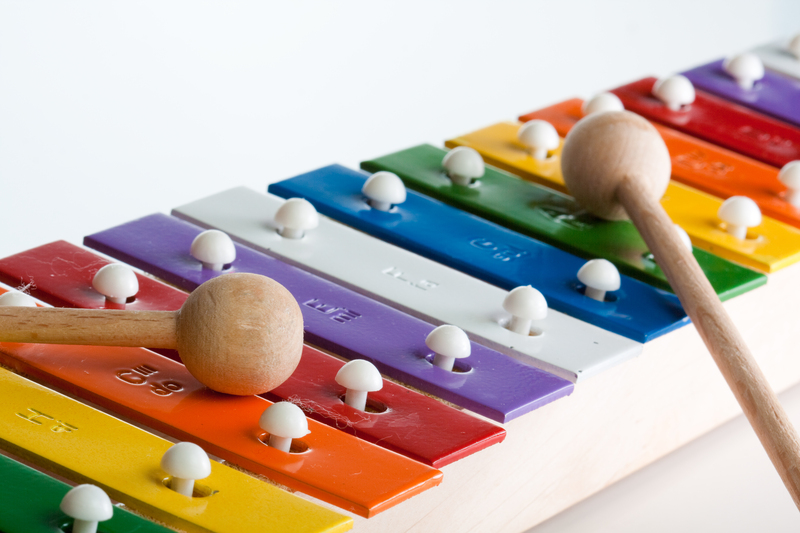De-cluttering as a Gateway to Enhanced Stress Relief
Have you ever noticed how a messy environment seems to intensify your stress levels? If so, you're not alone. In our fast-paced modern lives, physical clutter is more than just an eyesore--it's a silent stressor that can negatively impact our mental well-being, productivity, and happiness. Fortunately, embracing de-cluttering not only simplifies your physical space but also paves the way for increased relaxation and peace of mind. In this article, we'll explore how de-cluttering serves as a transformative gateway to enhanced stress relief and provide practical, actionable tips to help you reclaim your space and serenity.

Understanding the Link Between Clutter and Stress
Clutter is more than just accumulated stuff--it is a visible manifestation of disorganization and, at times, emotional overload. Multiple scientific studies have drawn a direct connection between messy spaces and increased cortisol levels, the hormone associated with stress. When your environment is crowded or chaotic, your mind can easily mimic this disorder, making it challenging to focus, relax, or even complete everyday tasks efficiently.
How Physical Clutter Affects Your Mind
- Overstimulation: Clutter bombards your mind with excessive stimuli, making it hard to process information and prioritize.
- Constant Reminders: Each pile or unorganized corner acts as a visual reminder of tasks left undone, fueling guilt and anxiety.
- Reduced Productivity: The more clutter present, the longer it takes to find items or concentrate on meaningful tasks, leading to frustration and wasted time.
- Impacted Relationships: A disorderly environment can lead to arguments, embarrassment, and even social withdrawal, further compounding feelings of stress.
The Science Behind De-cluttering and Stress Relief
Research from Princeton University Neuroscience Institute found that clutter competes for your attention, resulting in decreased performance and increased stress. Similarly, a UCLA study revealed that women who described their homes as "cluttered" experienced higher levels of the stress hormone cortisol. These findings highlight that de-cluttering can be a powerful tool for improving both mental and physical health.
The Benefits of De-cluttering for Stress Relief
So, how exactly does de-cluttering help relieve stress? Let's unpack the advantages:
- Mental Clarity: Clearing out unnecessary items frees up mental bandwidth and boosts your ability to think clearly and creatively.
- Improved Mood: Reducing visual chaos creates an atmosphere of order, leading to enhanced calmness, positivity, and contentment.
- Better Sleep: A tidy bedroom helps promote a restful bedtime routine and deeper, uninterrupted sleep--key to effective stress management.
- Enhanced Focus: With fewer distractions, it's easier to concentrate on essential tasks at work or home.
- Sense of Control: De-cluttering gives you a tangible sense of achievement and autonomy over your environment, reducing feelings of helplessness often associated with stress.
Emotional & Psychological Perks
Letting go of unnecessary possessions can be deeply therapeutic. Every item you release is a small victory over indecisiveness, nostalgia, or fear of letting go. The process fosters mindfulness, self-reflection, and gratitude, creating a positive feedback loop that naturally leads to enhanced stress relief.
De-cluttering: The First Step Toward a Calmer Mind
If your goal is stress relief through de-cluttering, the journey begins with small, manageable steps. Tackling an entire house in one day is unrealistic and can inadvertently create more anxiety. Instead, focus on steady, incremental progress.
Practical Tips to Start Effective De-cluttering
- Set Clear Goals: Decide which areas matter most. Is it your workspace, your kitchen, or your closet?
- Break It Down: Tackle one room, corner, or even drawer at a time to avoid overwhelm.
- Create Sorting Categories: Use simple piles: Keep, Donate, Recycle, Trash.
- Ask the Hard Questions: When was the last time you used it? Does it serve a purpose? Does it bring you joy or stress?
- Establish Routines: Set aside 10-15 minutes daily or weekly for ongoing maintenance.
Declutter with Mindful Intention
Approach each task with mindfulness. Instead of viewing de-cluttering as a chore, regard it as self-care and a way to invest in your mental well-being. Take breaks, and celebrate your progress along the way. Turn on some calming music, or invite a friend to help keep spirits high.
Room-by-Room De-cluttering Strategies for Stress Relief
1. The Bedroom: Your Sanctuary for Rest
- Clear the Nightstand: Remove unnecessary books, gadgets, and clutter.
- Edit the Wardrobe: Donate clothes you haven't worn in the last year.
- Reduce Under-Bed Storage: Keep only essential items in bins to minimize dust and chaos.
2. The Kitchen: The Heart of the Home
- Streamline Countertops: Keep only daily-use appliances visible.
- Purge Expired Foods: Regularly check the pantry and fridge.
- Organize Utensils & Cookware: Group similar items for easy access and less frantic cooking.
3. The Living Room: Space for Relaxation
- Control Paperwork: Use a designated folder for mail and bills.
- Corral Electronics: Store remotes, chargers, and gadgets in a single basket.
- Limit Decorative Items: Showcase only your favorite decor, and store or donate the rest.
4. The Workspace: Enhancing Productivity
- File or Shred Unnecessary Papers: Keep your desk surface as clear as possible.
- Digital De-cluttering: Organize computer files, delete old emails, and back up important documents.
- Personalize Mindfully: Select a few meaningful items to inspire you, not distract you.
Digital Decluttering for Stress Relief
In today's digital era, virtual clutter can be as overwhelming as its physical counterpart. Overflowing email inboxes, disorganized files, and an endless stream of app notifications can elevate stress. Here's how to tackle it:
- Unsubscribe: Get rid of promotional emails and newsletters you never read.
- Organize Folders: Create digital folders for documents, photos, and notes for easy access.
- Limit Notifications: Adjust app settings to reduce interruptions and enhance focus.
- Declutter Your Home Screen: Keep only essential apps visible to minimize digital distractions.
How De-cluttering Boosts Long-Term Stress Management
Making de-cluttering a regular practice offers sustainable stress relief benefits that go beyond the initial clean-out. Here's why:
- Maintains Mental Wellness: Regular tidying keeps anxiety at bay and fosters a sense of stability and control.
- Encourages Healthy Habits: A clean home often inspires healthier routines, such as exercise, meal planning, and restful sleep.
- Improves Financial Health: When you clearly see what you own, you're less likely to make unnecessary purchases, cutting down on financial worries--a common source of stress.
- Strengthens Relationships: Inviting, orderly spaces foster positive family dynamics and increase willingness to host friends, enriching your social life.
Declutter for All: Involving Family and Roommates
Stress relief through de-cluttering isn't just an individual pursuit. Getting your family or housemates involved makes the process easier and more enjoyable, while encouraging shared responsibility and respect for communal spaces.
- Set Shared Goals: Discuss the benefits and create a plan everyone is on board with.
- Turn It Into a Game: Create "De-clutter Challenges" with timed sessions or rewards.
- Allocate Clear Spaces: Ensure each person has defined storage areas to minimize future messes and misunderstandings.
Maintaining a Clutter-Free, Stress-Free Life
Consistency is key to sustaining the stress relief gained from de-cluttering. Here are some habits to integrate into your daily routine:
- Adopt the "One In, One Out" Rule: For every new item you bring into your home, let go of another.
- Regular Mini De-clutters: Spend a few minutes each week clearing surfaces and sorting out misplaced items.
- Organize as You Go: Put things back in their place right after use.
- Stay Mindful of New Clutter: Before making a purchase, ask yourself if it truly adds value to your life.

When De-cluttering Feels Overwhelming: Seeking Support
If the process seems daunting or you're dealing with clutter-related anxiety, it's okay to ask for help. Whether it's enlisting a trusted friend, hiring a professional organizer, or seeking online resources, remember there is no "perfect" way to de-clutter. The journey to stress relief is unique for every individual.
Conclusion: Embrace De-cluttering as a Gateway to Enhanced Stress Relief
De-cluttering is much more than a cleaning task--it is a therapeutic, transformative journey toward enhanced stress relief and greater well-being. By making intentional choices about your possessions and your spaces, you reclaim control, foster mental clarity, and create a nurturing environment for both body and mind. Start small, stay consistent, and soon, you'll find that a calm, uncluttered space leads to a calm, uncluttered mind--the ultimate foundation for a happier, healthier life.
Ready to experience the power of de-cluttering for yourself? Take the first step today, and unlock a pathway to genuine stress relief, one room at a time!